IAEA Kept UN Inspectors Out Of Iran's Facilities This Week
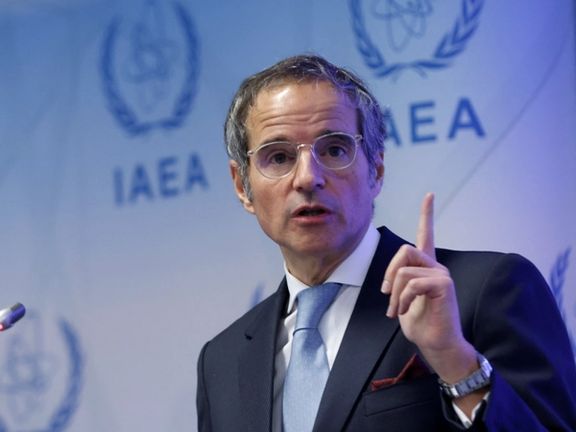
UN nuclear inspectors in Iran have stayed away from related facilities since Sunday, amid threats of an Israeli attack, the head of the UN nuclear watchdog, the IAEA said on Monday.

UN nuclear inspectors in Iran have stayed away from related facilities since Sunday, amid threats of an Israeli attack, the head of the UN nuclear watchdog, the IAEA said on Monday.
Rafael Grossi, director of the International Atomic Energy Agency, told reporters in New York that Iran had closed its nuclear facilities on Sunday over “security considerations.” While they reopened on Monday, Grossi said he kept IAEA inspectors away “until we see that the situation is completely calm.”
After Iran targeted Israel with a massive barrage of around 350 drones and missile on Saturday/Sunday night, Israeli leaders have vowed retaliation. The United States, European powers and some regional counties have urged Israel to exercise restraint, but Israel military and political officials have vowed to restore deterrence.
“We are going to resume tomorrow,” Grossi added. “This has not had an impact on our inspection activity.”
Asked about the possibility of an Israel strike on Iranian nuclear facilities, Grossi said, “We are always concerned about this possibility.” Grossi also urged “extreme restraint.”
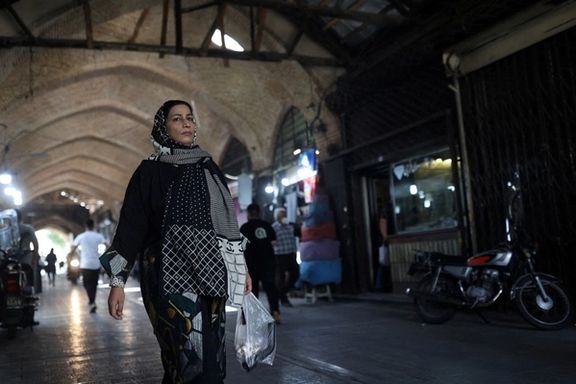
Iranian commentators and media anticipate a gloomy year ahead for the country’s economy, largely attributing the outlook to government inefficiency and the immense pressure of US sanctions.
Meanwhile, analysts warn that the situation is exacerbated by the government’s apparent lack of a plan to tackle longstanding economic crisis.
Yahya Ebrahimi, a lawmaker from Delfan has said in an interview with Rouydad24 website that that if the situation remains unchanged and the government does not come up with an effective initiative, the US dollar can rise from around 650,000 rials to 1000,000.
He bemoaned the vanishing middle class in Iran, emphasizing that a considerable segment of the population now falls below the official poverty line. He highlighted President Raisi's unfulfilled promise made at the outset of his term in 2021, pledging to safeguard the country's economy from dependence, even on the unlikely prospect of improved relations with Washington. However, Ebrahimi criticized Raisi for failing to uphold this commitment.

According to Ebrahimi, Raisi's assurances regarding economic progress no longer hold weight, given the evident rise in prices, housing costs, and exchange rates, which starkly reflect the economic conditions. He further contended that the actual inflation rate far exceeds the government's reported figure of 40 to 50 percent.
Moreover, Ebrahimi asserted that government mismanagement has inflicted greater harm on the economy than the US sanctions.
Meanwhile, according to a Khabar Online report, housing costs in Iran are poised to escalate further unless the government urgently addresses the housing crisis. The report reveals that the price per square meter of housing units in Tehran surged to 810 million rials (around $1,300) in March 2024, marking a 24.8 percent increase compared to March 2023.
Kianush Goudarzi, Chairman of Tehran's Estate Agents Union, explained to Khabar Online that the spike in housing prices is primarily linked to the surge in exchange rates. Additionally, he noted that given the overall rise in prices across various sectors, an increase in housing costs is expected and natural.
In an article published in Etemad online, former government spokesman Ali Rabei underscored the grim outlook across all sectors, warning of the looming threat of social instability in Iran due to mounting unemployment and poverty. He emphasized, "Unemployment and poverty breed economic insecurity, which in turn fosters social unrest."
Rabei lamented that despite the availability of jobs, the government's low wage policies have left many unemployed individuals disinterested in seeking employment. Moreover, he highlighted the disparity between the government's claims of economic growth and the lack of tangible improvements in people's livelihoods, leaving many questioning the real impact of this purported growth.
According to centrist politician Mansour Haqiqatpour, the problem is that the government has no plan whatsoever to save the country's sinking economy. He added that neither the Raisi administration, nor the parliament have any idea about how to put an end to the ongoing economic crisis.
Conservative politician Ezzatollah Yousefian Molla attributes the surge in prices to government policies, highlighting the detrimental impact of economic instability on businesses. In an interview with Nameh News, he emphasized that restoring public trust in the government is imperative to address ongoing economic challenges.
Yousefian Molla underscored the pervasive uncertainty in the market, particularly regarding fuel prices, which has stymied business confidence. He criticized the government's indecision and inaction, citing the paralysis induced by fluctuating fuel prices as a key factor exacerbating economic instability. Additionally, he pointed out that discussions surrounding potential tax hikes on businesses and individuals further contribute to the prevailing sense of uncertainty.
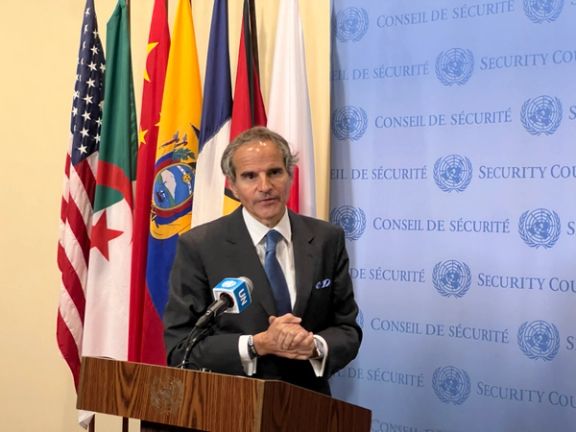
Iran shut down its nuclear facilities last Sunday over “security considerations,” UN nuclear chief Rafael Grossi has said, expressing concern over the “possibility” of an Israeli attack on Iran’s nuclear sites.
Speaking to reporters in New York on Monday, IAEA Director General confirmed that the facilities had reopened within 24 hours, but with no IAEA supervision, as the agency has decided to keep its inspectors away until the situation is “completely calm.”
Grossi was referring to rising tensions between Israel and Iran, which many fear may lead to an all-out war between the two countries and potentially engulf the whole Middle East.
Israel bombed Iran’s consulate in Damascus on 1 April, killing seven members of the Islamic Revolution’s Guards Corpse (IRGC), including a high-ranking commander and his deputy. Iran retaliated on 13 April, launching more than 300 missiles and drones towards Israel –all but a few of which were intercepted by Israel and its allies.
On Monday, Israeli officials vowed to respond to the attack. When asked about the possibility of Israel hitting Iran’s nuclear sites, Grossi said, “We are always concerned about this possibility.” He urged both sides to show “extreme restraint”.
Grossi also reiterated the IAEA’s concerns about Iran’s nuclear program.
“A bit more than a year ago, I went to Tehran and signed a joint declaration with the Iranian government indicating a number of actions that we will be taking together with Iran,” Grossi said. “We started that process and that process was interrupted. And I have been insisting that we need to go back to that understanding that we had in March 2023.”
In September 2023, Iran withdrew the designation of several inspectors assigned to conduct verification activities in Iran under the Non-Proliferation Treaty Safeguards Agreement. Iran’s nuclear chief Mohammad Eslami later claimed that those expelled had had a history of "extremist political behavior”.
“We are always urging, asking and requiring Iran to cooperate with us in full,” Grossi told Iran International’s Maryam Rahmati. “It's not that we are not there, but we are not there at the level that we consider we should be.”
The IAEA reported in February that Iran is enriching and stockpiling near-weapons-grade uranium, warning that such elevated purity cannot be explained by civilian applications.
When asked about Iran’s enrichment levels by Iran International, Grossi siad, “the fact that there is an accumulation of uranium enriched at very, very high levels does not automatically mean you're having a weapon…but it raises questions in the international community.”
Iran has always denied seeking nuclear weapons, but no other state has enriched to that level without producing them.
A report published last month by the Institute for Science and International Security claimed that Iran is moving ahead with building a nuclear site deep underground near Natanz.
“This Iranian nuclear weapons-making facility could be impervious to Israeli and perhaps even American bombs,” Foundation for Defense of Democracies CEO Mark Dubowitz said at the time. “Time is quickly running out, as Iran moves into a zone of nuclear immunity, to deny the regime permanent use of this deadly site.”
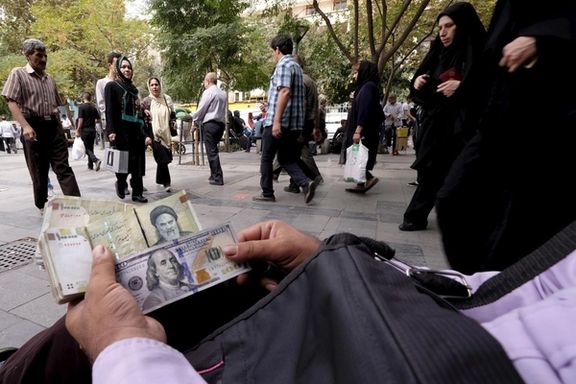
During the 2.5-year tenure of President Ebrahim Raisi, Iran has seen its liquidity double due to a 100% increase in state debts to Iranian banks, aimed at compensating for the budget shortage and current expenses.
According to a report by the Central Bank, liquidity increased by 24% during the last fiscal year, which ended on March 19, reaching approximately 80,000 trillion rials ($123 billion, based on the USD rate in open markets). This figure represents more than 30% of Iran's GDP.
Since President Raisi came into office in August of 2021, liquidity in Iran has nearly doubled, leading to rampant inflation, which escalated to 47% during the last fiscal year.
The increase in the state’s debts to Iranian banks, which forced the Central Bank to engage in uncontrolled printing of unsupported banknotes, has accelerated the rate of currency devaluation.
Yet, this month, President Raisi claimed that increased liquidity in Iran is "one of the signs of the country's economic growth".
Over the past five years, Iran’s Central Bank has ceased publishing government budget reports. But, according to the Supreme Audit Court of Iran and the Research Center of the Islamic Legislative Assembly, it is estimated that since 2018—when the US withdrew from the Joint Comprehensive Plan of Action (JCPOA) and imposed sanctions on Iran’s oil exports—the government's annual budget deficit has consistently exceeded 30%.
A detailed look at the Central Bank statistics show that the majority of liquidity is cash and short-term bank deposits, due to the accelerated devaluation.
Simply put: Iranians avoid depositing money in banks for longer terms.
The above three-year bank deposits amount is almost zero, due to the lack of trust in the government's monetary policies.
Government debts
The Central Bank of Iran reports that the government's debts to this bank jumped by 65% year-on-year to more than 3,000 trillion rials ($4.6 billion) during the last fiscal year.
In addition to the government itself, state-owned companies also owe 880 trillion rials ($1.35 billion) to the Central Bank.
The mentioned figures are only a small part of the government's debt to the country's banking system.
The report of the Central Bank shows that the total debt of the government and state-owned companies to all Iranian banks increased by 56% year-on-year to above $20 billion at the end of last fiscal year.
Despite Raisi’s campaign pledge to stop government borrowing, there has been a significant increase in the state’s debt to the banking system. Since Raisi came to power, the government's debt to the domestic banks has almost doubled.
Bank debts share only 20% of the Iranian government’s total debts.
The National Development Fund (NDF) was set up in the early 2000s with the aim of safeguarding a slice of oil revenues for the benefit of future generations, as well as to support the private sector with loans. Today, the Iranian government's debt to the NDF has ballooned to over $100 billion.
In addition, the government has withdrawn two-thirds of the NDF’s reserves to compensate for the budget deficit and finance the current expenses of state-run companies.
Notably, the National Iranian Oil Company is the biggest debtor in the country and shares about 60% of the government’s total debts.
The International Monetary Fund has calculated that the debts of the Iranian government amount to 30.5% of its GDP, which is equivalent to $118 billion, or 2.5 times the government's budget for the current fiscal year.
Iran’s staggering state debt and liquidity have led to an acceleration in devaluation, especially in recent weeks when the Iranian rial plunged to its historical lowest value. Currently, each USD is sold at about 650,000 rials, whereas at the beginning of Raisi’s presidency, it was about 230,000 rials.
Since the US withdrawal from the JCPOA in 2018, the Iranian rial has lost about 94% of its value.
The Iranian government faced an $18 billion non-oil trade (excluding services) deficit during the last fiscal year, the highest amount ever and three times more than the previous year.
While Iran experiences about $10 billion in capital flight and a $7-8 billion negative balance in service trade annually, its total oil export revenues stood at less than $36 billion during the last fiscal year. Iran sells its oil via middlemen to Chinese independent and small refineries, known as teapots, with a $13 discount per barrel.
Iran also barters its oil for Chinese goods and services.
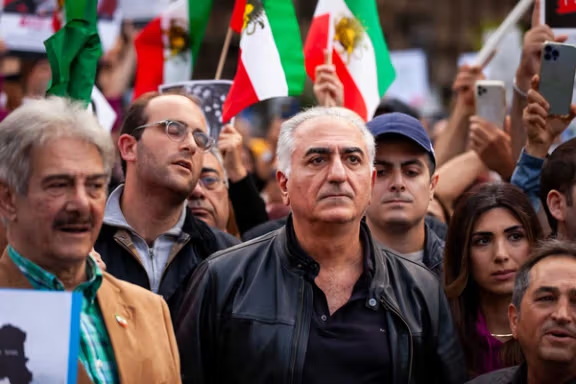
In a public statement on X, Iran's exile prince Reza Pahlavi urged collective action to topple the Islamic Republic amidst escalating tensions between Iran and Israel.
In his statement, Pahlavi firmly delineated the separation between the regime's ambitions and the desires of the Iranian people, emphasizing solidarity with the people who suffer the repercussions of the “oppressive” policies of the Islamic Republic apparatus.
"The war of Khamenei and his Guards with Israel is not the Iranian nation’s war. But it is you, burdened by economic problems and psychological pressures of a regime that has used Iranians as human shields for the past 45 years, that will bear the cost….”
Pahlavi further added that the fates of Iranians and Israelis have become intricately linked, with both nations yearning for peace obstructed by a mutual adversary: the Islamic Republic.
He highlighted that "the attack against Israel coincided with a new round of attacks on Iranian women," pointing to the new initiative by the police in Iran to enforce mandatory hijab regulations and crackdown on women intensifying.
Addressing the military in his statement, he implored them to rethink their allegiance and stand in solidarity with the Iranian people.
He further called on the Iranian diaspora to "urge the governments in the nations in which we live to cease appeasing Khamenei's regime and instead support the people of Iran.".
Central to Pahlavi's narrative is the imperative need for regime change, advocating for “the establishment of a national, secular, and democratic government", echoing the voices of the Iranian people and the ever-growing momentum behind the anti-government movement inside Iran.
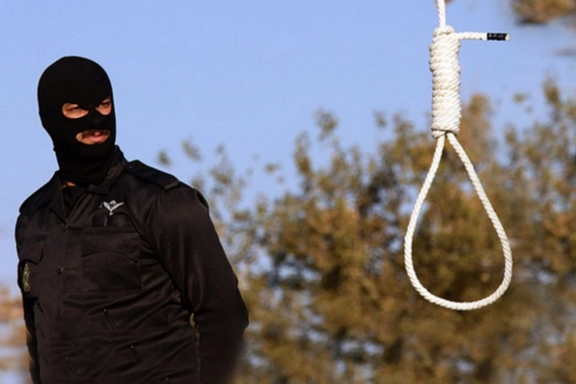
Recent reports from human rights organizations indicate a rise in the number of executions carried out in Iran.
At least four people were executed in Hamedan, Esfahan (Isfahan), and Zanjan province prisons from April 11 through April 14, an apparent spike in state-sanctioned killings.
On Sunday and Monday, five prisoners were locked up in solitary confinement in Ghezel Hesar prison of Karaj, near Tehran, and one in Rasht prison in preparation for their executions.
The new wave of prison executions in Iran, which the Islamic Republic has initiated, seems to run concurrently with its missile and drone attacks on Israel, amid the global focus on its military actions. Also, some believe that after a brief lull during the month of Ramadan, the government has resumed the high rate of executions witnesses in the past few months.
Amnesty International issued a report on April 4 where it explained that there is a rise in executions in Iran. The report explained that 853 people were executed in 2023, the highest record in eight years, with over half being hanged for drug-related charges, reflecting an 89% increase from 2022.
More than 80 human rights groups last week issued a joint statement urging the United Nations to press Iran to end its prolific use of the death penalty, mostly in matters of drug offenses. The groups have urged the UN Office on Drugs and Crime to review its collaboration with Tehran and suggest that any continued collaboration should be pegged on Iran stopping the executions.






